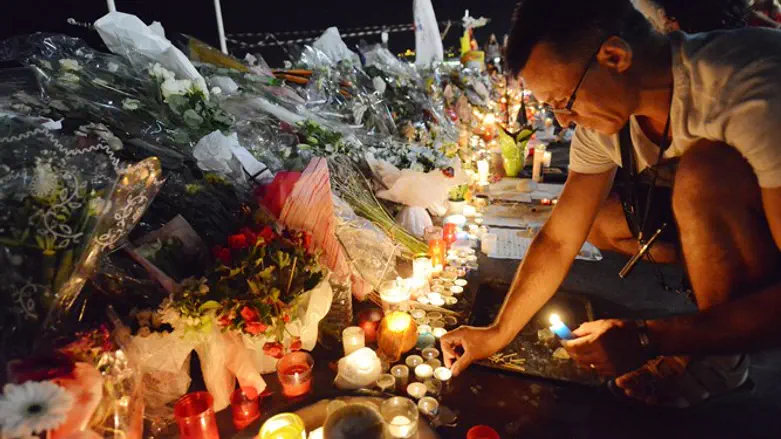
(AFP) With jihadist attacks proliferating around the world, the United States has reassembled its coalition partners for meetings Wednesday and Thursday to review a two-year-old war that has so far failed to eliminate the Islamic State group (ISIS or IS).
The terrorist group may have lost ground in Iraq and Syria, but in recent weeks it has claimed horrific attacks in Nice, Istanbul, Baghdad and Dhaka that have left hundreds dead and injured.
ISIS also yesterday took responsibility for a stabbing attack aboard a train in Germany which left 18 people wounded.
The attacks are "going to be a primary focus, obviously, of the discussions," Brett McGurk, President Barack Obama's special envoy to the anti-ISIS coalition, acknowledged.
For two days, US Secretary of State John Kerry and Defense Secretary Ashton Carter will meet with about 40 of their counterparts in Washington, including France's Foreign Minister Jean-Marc Ayrault and Defense Minister Jean-Yves Le Drian.
Echoing French Prime Minister Manuel Valls' warning of more attacks ahead and and more "innocents killed," McGurk also cautioned: "Nobody can say these attacks are going to stop.
"Unfortunately, I think we are going to see more of these," he said.
McGurk emphasized that the coalition, which has conducted 14,000 air strikes in two years, is "succeeding on the ground." But he added, "We have a lot of work to do on (jihadist) networks."
'Down but not out'
The problem, says Michael Weiss, an expert at the Atlantic Council think tank, is that "at the territorial level ... ISIS is down but not out."
"It has lost its ability to back and hold large swaths of terrain but it has not lost its ability to wage ... opportunistic attacks," he said.
Washington maintains that since its peak in 2014 ISIS has lost nearly 50 percent of the Iraqi territory it conquered and between 20 and 30 percent of its Syrian strongholds.
In Iraq, with the fall of the Sunni bastion of Fallujah to government forces, the coalition has turned its sights on ISIS-held Mosul, bent on keeping the pressure on.
"We are going to reinforce the coalition's means," Valls vowed Tuesday night.
Peter Cook, the Pentagon press secretary, also insisted: "There is a sincere interest - and you'll see it reflected Wednesday at this meeting - that that effort will accelerate".
But Weiss, for one, doubts that Mosul or Raqqa, ISIS's "capital" in Syria, can be retaken before Obama leaves office in January.
In Syria, where civil war has claimed 280,000 lives and uprooted millions of people, the Syrian Human Rights Observatory said nearly 60 civilians, including children, were killed Tuesday in coalition air strikes near an IS-held village in the province of Aleppo.
Kerry just returned from Moscow where he reach an agreement with the Russians to cooperate more closely in an attempt to salvage a failing truce and focus on the jihadists.
But Kerry said the concrete measures adopted by Russia and the United States would not be disclosed to allow the "quiet business" of peacemaking to continue.
Two billion dollars for Iraq
The coalition will also be discussing what comes after ISIS, particularly in Iraq, the subject of a separate donors meeting Wednesday.
The United States, Japan, Canada, Germany, Netherlands and Kuwait are hoping to raise two billion dollars in pledges, according to US diplomats.
Baghdad needs the money to rebuild in areas that have been retaken and enable the population to return.
"Today is the time" for "assisting Iraq in the post-liberation area," Iraqi Foreign Minister Ibrahim al-Jafaari pleaded in Washington Tuesday.
Iraqi forces that recently retook Fallujah are advancing through the Tigris valley toward Mosul. They have recaptured the Qayyara air base about 60 kilometers (40 miles) south of the city, which US military officials say will serve as a launch pad for offensive operations against Mosul.
Washington has also announced that it will send 560 more US troops to Iraq to help the government fight IS and recapture Mosul.
That will bring to 4,600 troops the US military presence in Iraq five years after the United States' 2011 military withdrawal.
